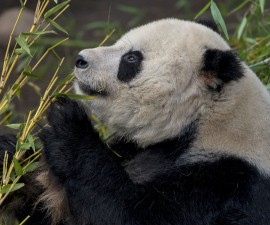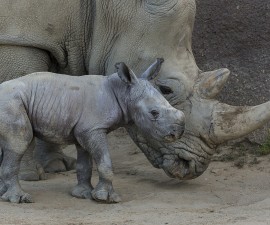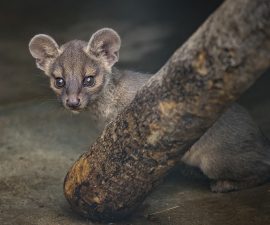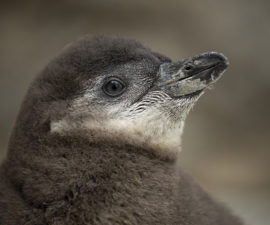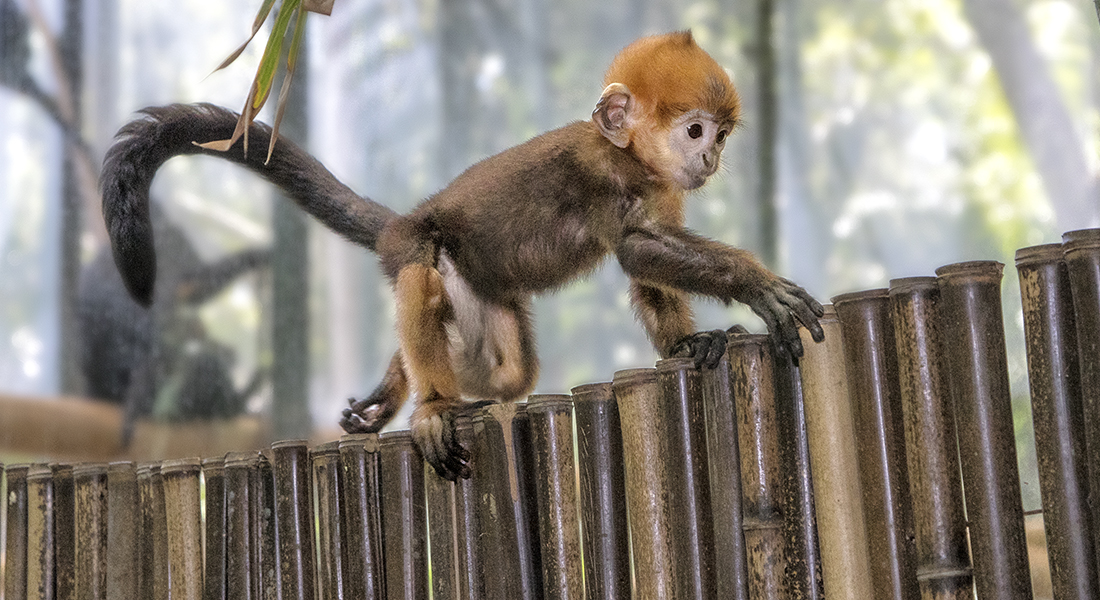
A Golden Opportunity
For one little langur, being raised by both keepers and his monkey family was the perfect combination.
BY Karen Worley
Photography by Ken Bohn
When Francois’ langur Meili gave birth to her first baby on February 28, 2017 at the Zoo, it was happy news for San Diego Zoo Global—these langurs are an endangered species, and every birth is cause for celebration. The initial excitement turned to concern, however, when the keepers saw that Meili was not holding the baby and was staying away from him. As they watched and monitored the situation, it became apparent that, for unknown reasons, she had rejected him. In Francois’ langur groups, several females usually pitch in to help raise offspring—but this time, the group members were not caring for the baby, either. It was clear that this little newcomer was going to need some helping hands if he was going to survive.
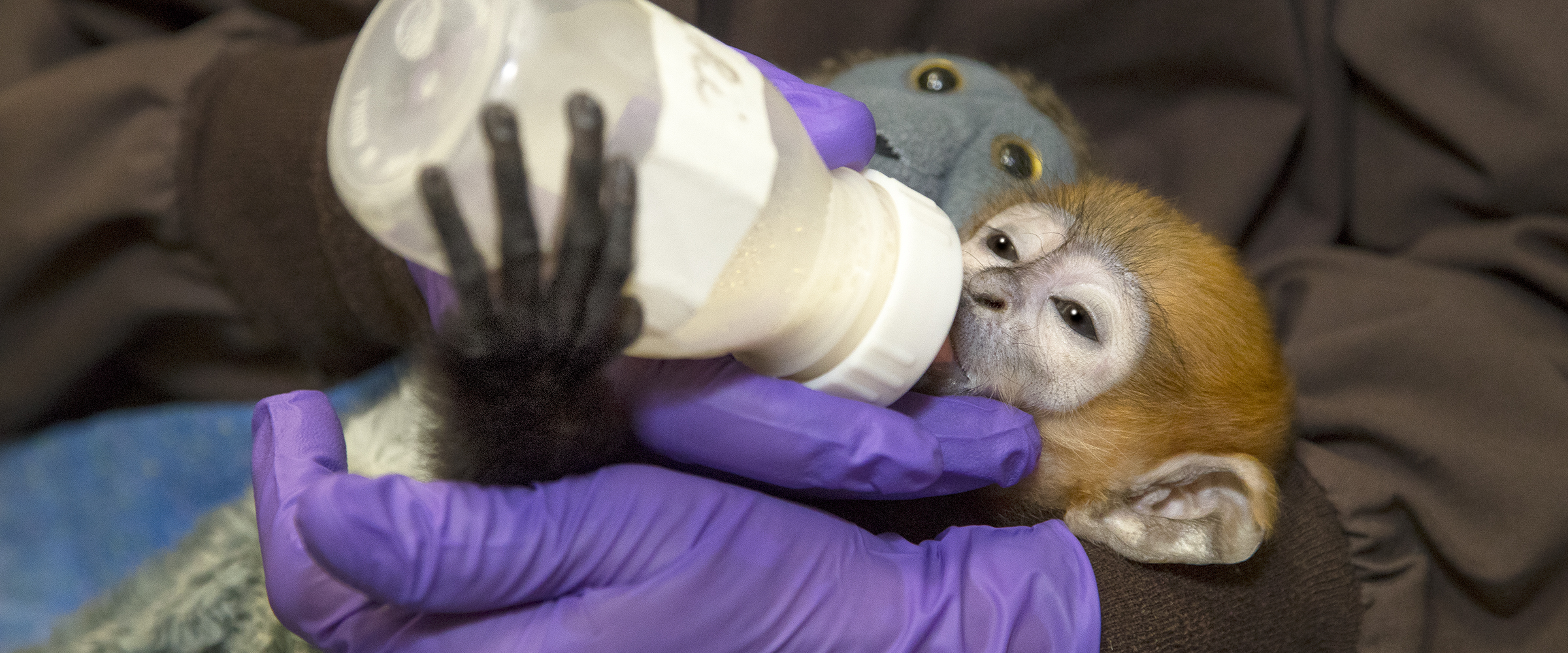
 Francois’ langurs are listed as Endangered. Their population has been reduced by 50 percent in the last 30 years.
Francois’ langurs are listed as Endangered. Their population has been reduced by 50 percent in the last 30 years.
Rough Start
The first and best option was to give Meili another chance to accept her baby. Mindy Settles, primate keeper at the San Diego Zoo, was able to retrieve the little golden-orange monkey from the exhibit, and place him in a back bedroom area. She then shifted Meili into the bedroom, in exchange for a treat. Mindy hoped that in the quiet area by herself, Meili’s maternal instincts would kick in when she saw the baby. “Our goal was to get Meili to pick up the infant and, hopefully, accept him as her own as quickly as possible,” Mindy said.
Unfortunately, that didn’t happen—Meili continued to ignore him. It was disappointing, but at that point, it was time to take the baby to the veterinary hospital to be warmed up, given fluids, assessed by the veterinarians, and fed. “Infants need to nurse every few hours, in order to stay healthy. So, for any long period of time that he wasn’t able to nurse from mom, we needed to do supplemental feeding,” Mindy explained. Still, the animal care staff hadn’t given up on having his social group raise him. They were determined to find a way for this little langur—who they named Chi, meaning “breath of life”—to return to his family.
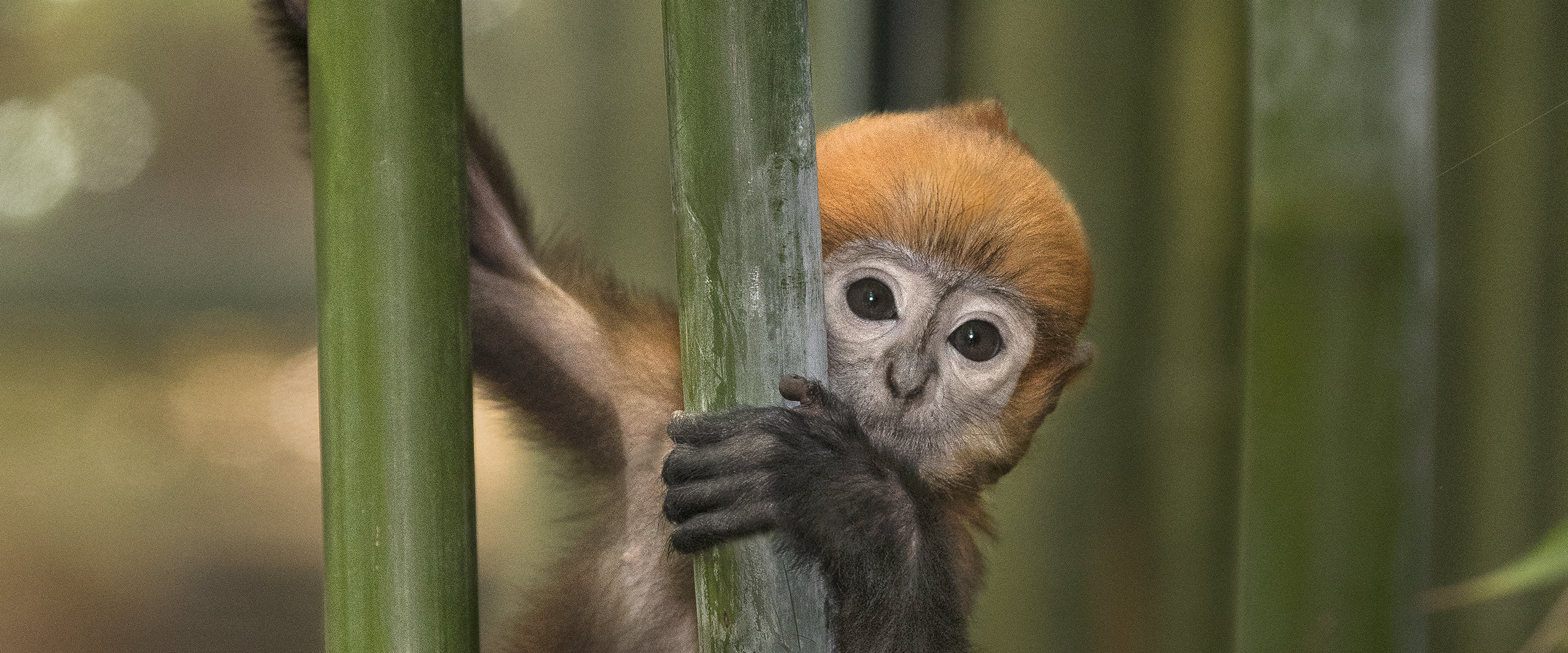
 Francois’ langurs are threatened by habitat loss and fragmentation, and by being hunted for their body parts, used in traditional medicine.
Francois’ langurs are threatened by habitat loss and fragmentation, and by being hunted for their body parts, used in traditional medicine.
Mother and Child Reunion
The next morning, keepers tried again to put Chi in with Meili—but she still didn’t respond. Chi was then taken to to a special area in the langur building that contained an incubator, where the keepers could feed him and he would be warm and comfortable. From there, he could see the langur troop, and he was close by for continued efforts to introduce him.
“We continued daily introductions between Chi, his mom, and the Francois’ langur group. During that first week, no one in the group chose to pick him up, and the keeper removed him at the end of each introduction, using positive reinforcement to first move the rest of the group from the area,” Mindy said.
Then in week two, the keepers’ dedication was rewarded: Meili picked Chi up and actually held him for the first time. Now that Meili had accepted the baby, soon the other group members began interacting with him and carrying him as well. Everyone breathed a happy sigh of relief.
This was a wonderful outcome, but it also created a new challenge. Although Meili was now holding, carrying, and grooming Chi, she was not nursing him. The keepers would still need to feed him—but how, when he was firmly held by his mother or another member of the group?
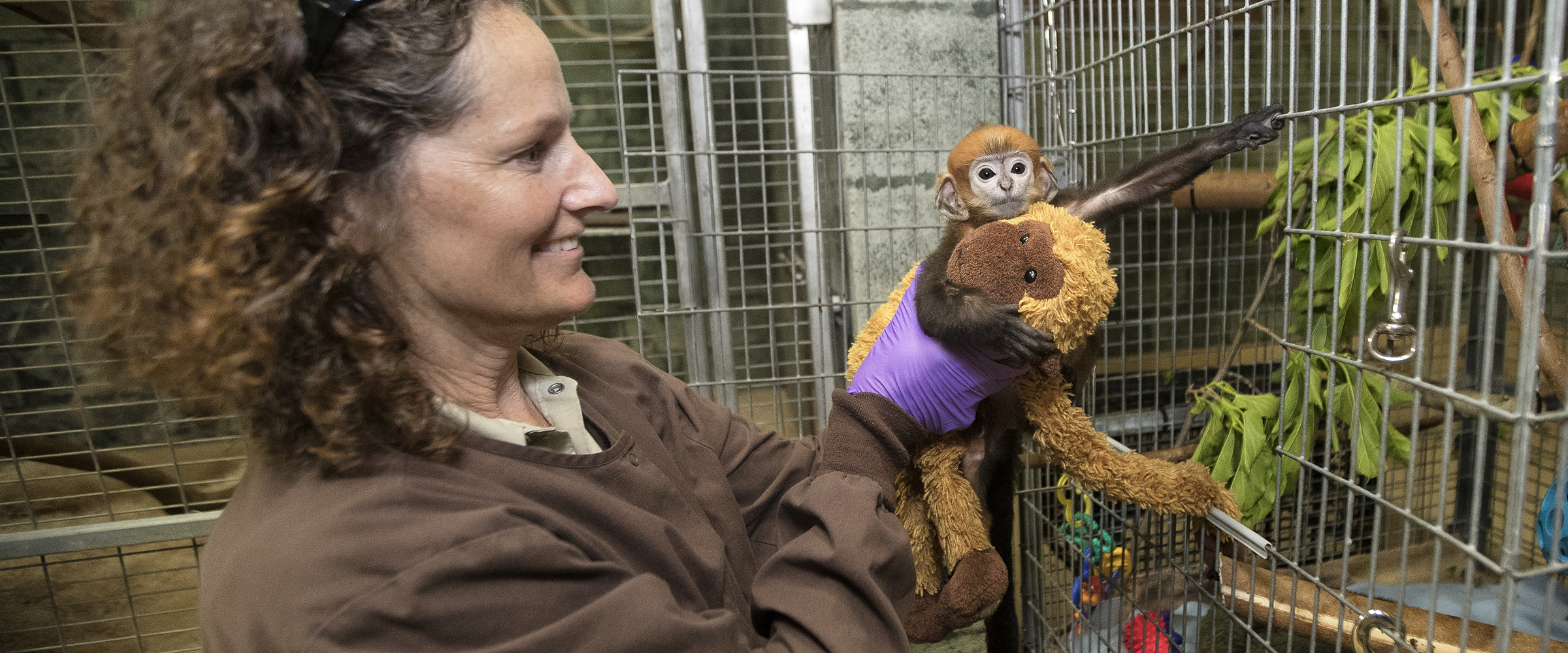
 Francois’ langurs are one of the Old World monkey species supported by a Species Survival Plan with the Association of Zoos and Aquariums and by field conservation and education efforts.
Francois’ langurs are one of the Old World monkey species supported by a Species Survival Plan with the Association of Zoos and Aquariums and by field conservation and education efforts.
Co-parenting a Langur
Now that Chi was back with his family, keepers were confident he was developing proper social behaviors, and they wanted to keep him with the group as much as possible. However, he needed to be fed with bottles of formula every two and a half hours, and he was too young to drink from a bottle on his own. The keepers needed to find a way to reliably retrieve him from the group, so they could feed him.
The best way for that to work was to enlist Meili’s and the group’s cooperation, using this species’ natural behavior of the troop working together to raise offspring, a strategy known as alloparenting. Mindy explained that “We needed Meili’s help, and this is where having a strong relationship built around trust, positive reinforcement, and training became our saving grace.” The plan was to use positive reinforcement training to ask Meili, in exchange for treat rewards, to go get Chi if she didn’t already have him, willingly “station” on a box just inside an opening, and stay there while keepers opened the flap, reached in, and retrieved Chi. That way, Meili was voluntarily participating, Chi would get his bottles, and the process would be a calm one.
Meili proved to be a quick study in learning her part, and within a week, she could be counted on to bring Chi to the station and transfer him to the keepers. The little golden—or, rather, golden-orange—infant continued to grow, develop, and thrive as an integral part of the langur troop. It was exactly what the keepers had hoped for. “I can’t stress enough how amazing this opportunity is for us,” said Jill Andrews, animal care manager for primates. “The amount of cooperation between the monkeys and the keepers for the care of this infant is, frankly, astonishing.”
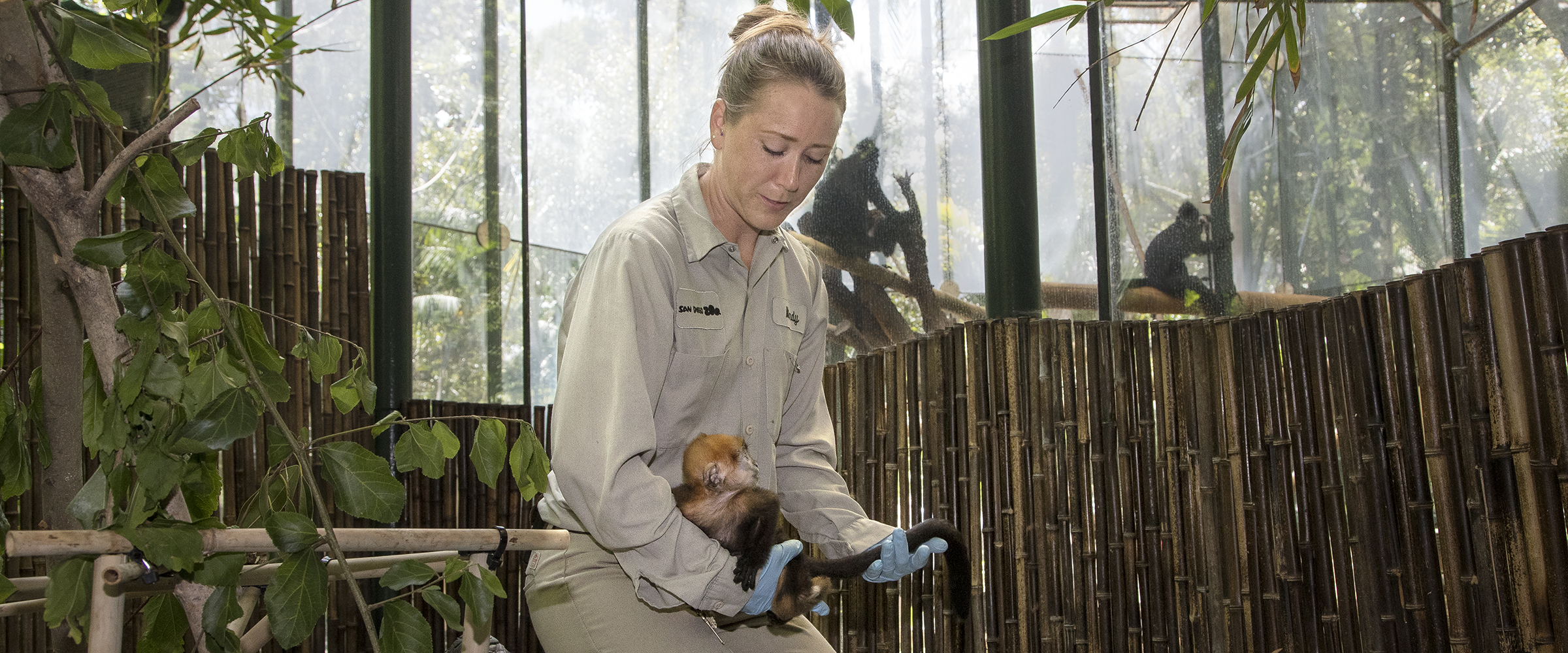
Positive Chi
By two months of age, Chi hadn’t missed any of his feedings or a day with his family. He was active, energetic, and starting to explore. Now that he was older, he also exerted more control over whether he would go to the keepers for a bottle or not, which was about every four hours. But that’s where the trusting relationship the keepers had established with not only his mother but also with him came into play once again. Although bottle feeding wasn’t always his favorite thing, the keepers rewarded Chi with solid food treats, browse, and items to play with, which he enjoyed. Keepers planned to continue feedings, tapering off over time as he began to eat solid food on his own.
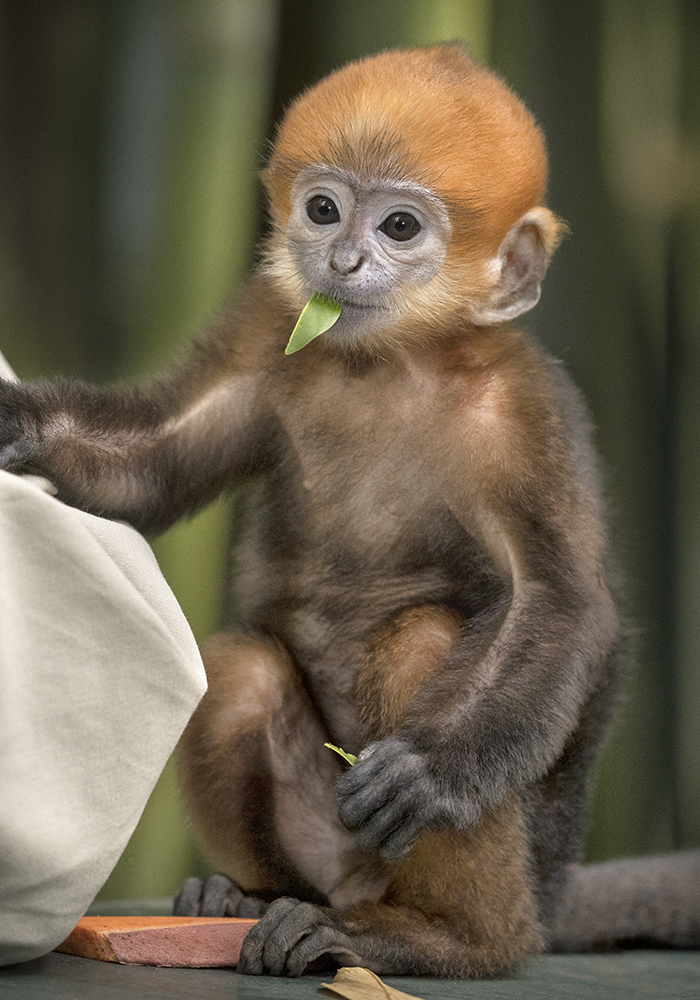
TURNING OVER A NEW LEAF
Graduating from bottles of formula to this species’ diet of leaves is the
next step for Chi.
Although Chi got off to a difficult start in life, with some help from his caregivers he was able to overcome the challenges and become a regular member of the Zoo’s Francois’ langur group. The keepers at the veterinary hospital neonatal care unit and at the langur exhibit, along with Zoo nutritionists and animal behavior management staff, all made sure that Chi had every opportunity for success. He’s now leaping into a bright future.

